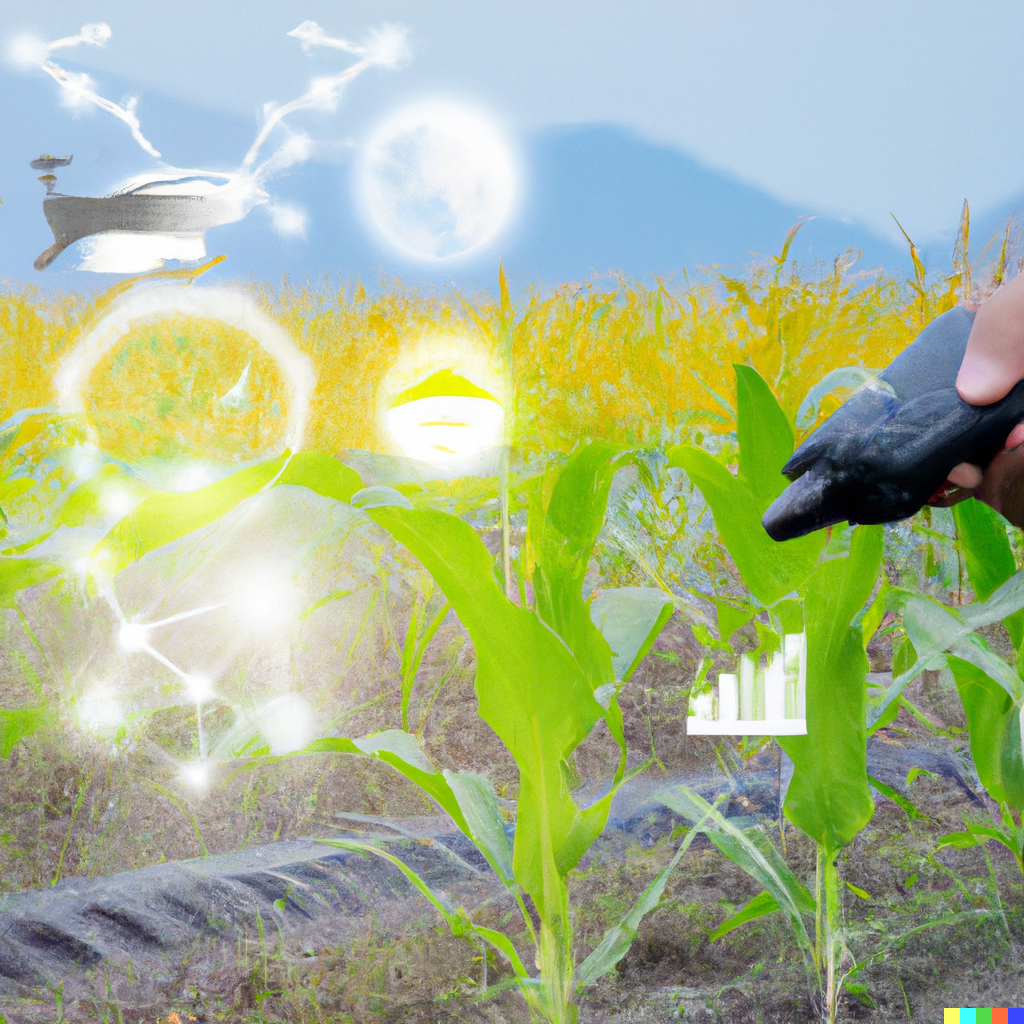April 30 | Agricultural Technology AgriTech

In the past century, agriculture has undergone a profound transformation, evolving from traditional farming methods to a highly sophisticated industry. This evolution has been driven by technological advancements that have revolutionized every aspect of agriculture, from planting to harvesting and beyond. Agricultural Technology, commonly known as AgriTech, encompasses a wide range of innovations that aim to enhance efficiency, productivity, and sustainability in farming practices. In this article, we'll delve into the world of AgriTech, exploring its various applications, benefits, and the transformative impact it has on modern agriculture.
The Rise of AgriTech: The advent of AgriTech can be traced back to the Green Revolution of the mid-20th century, which introduced modern agricultural techniques and technologies to significantly boost crop yields. Since then, AgriTech has continued to evolve rapidly, driven by advancements in fields such as biotechnology, robotics, data analytics, and artificial intelligence.
Applications of AgriTech:
Precision Agriculture: Precision agriculture involves the use of technology to optimize farm management practices. This includes the precise application of inputs such as water, fertilizers, and pesticides, tailored to specific conditions within a field. By leveraging data from sensors, drones, and satellite imagery, farmers can make informed decisions to maximize crop yield while minimizing waste.
Automation and Robotics: Automation and robotics play a crucial role in modern agriculture by reducing labor costs and increasing efficiency. Automated systems for planting, harvesting, and sorting have become increasingly prevalent, enabling farmers to streamline operations and improve productivity. Robotics also offer solutions for tasks such as weeding, spraying, and monitoring crops, leading to more sustainable and environmentally friendly farming practices.
Biotechnology and Genetic Engineering: Biotechnology has revolutionized crop breeding and genetic engineering, allowing scientists to develop crops with desirable traits such as drought resistance, pest resistance, and increased nutritional value. Genetically modified organisms (GMOs) have sparked debates over safety and ethics, but they have also demonstrated the potential to address global food security challenges by increasing crop yields and resilience to environmental stressors.
Internet of Things (IoT) and Data Analytics: The Internet of Things (IoT) has enabled the interconnectedness of farm equipment, sensors, and other devices, creating a network of data-driven insights. By collecting and analyzing data on weather patterns, soil conditions, crop health, and equipment performance, farmers can optimize their decision-making processes and implement data-driven strategies to improve efficiency and profitability.
Benefits of AgriTech:
Increased Productivity: AgriTech solutions help farmers optimize resource allocation, minimize waste, and maximize crop yields. Precision agriculture techniques, coupled with advanced machinery and genetics, enable farmers to achieve higher levels of productivity than ever before, ensuring a more reliable food supply to meet the demands of a growing global population.
Sustainability: By promoting more efficient use of resources such as water, fertilizers, and energy, AgriTech contributes to sustainable farming practices that reduce environmental impact. Precision agriculture minimizes chemical runoff and greenhouse gas emissions, while biotechnology offers solutions for reducing the need for chemical inputs and preserving biodiversity.
Cost Reduction: Automation and robotics reduce the reliance on manual labor, which can be costly and labor-intensive. By automating repetitive tasks and optimizing resource usage, AgriTech solutions help farmers cut costs and improve profit margins, making agriculture more economically viable in an increasingly competitive market.
Data-Driven Decision Making: Access to real-time data and analytics empowers farmers to make more informed decisions, mitigating risks and optimizing outcomes. By monitoring crop health, predicting weather patterns, and analyzing market trends, farmers can adapt their strategies accordingly, maximizing efficiency and profitability.
Challenges and Considerations: Despite its numerous benefits, AgriTech also presents challenges and considerations that must be addressed. These include concerns over data privacy and security, ethical implications of genetic engineering, and the digital divide that may limit access to technology for small-scale farmers in developing countries. Additionally, there is a need for regulations and standards to ensure the responsible development and deployment of AgriTech solutions, balancing innovation with environmental and societal concerns.
Conclusion: Agricultural Technology (AgriTech) holds immense potential to transform the future of farming, offering solutions to enhance productivity, sustainability, and profitability. From precision agriculture and automation to biotechnology and data analytics, AgriTech innovations are revolutionizing every aspect of agriculture, paving the way for a more efficient, resilient, and environmentally friendly food system. As we continue to harness the power of technology to address the challenges of feeding a growing global population, AgriTech will undoubtedly play a central role in shaping the future of agriculture for generations to come.
SHARE THIS:
© Copyright 2026Global Tech AwardsAll Rights Reserved